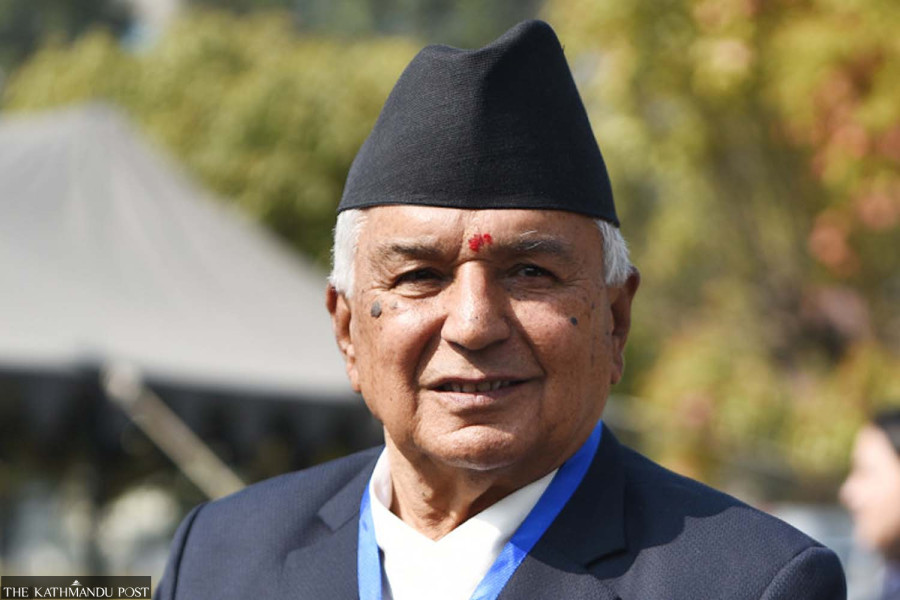Editorial
Paudel takes up baton
Paudel can learn much by closely studying the stints of his two predecessors as President.
If there is someone who epitomises the idea of perseverance in contemporary Nepali politics, it must be Ram Chandra Paudel. For most of the past three decades, Paudel has been at or around the centre of Nepali politics, but he mostly remained a second-rung leader, always whining about the top leadership and lacking the wherewithal to be one. His 2010 loss at the prime ministerial elections, for a farcical 17 times, has since become a matter of much jest. In 2017, he lost to his long-term rival Sher Bahadur Deuba in the Nepali Congress presidential polls at the party’s 13th general convention. He then went on to lose his Tanahun seat in the 2017 parliamentary elections. His detractors termed him an eternal loser—but he didn’t lose heart. And now, as a cherry on the top of his long political career, he has won the election to be the country’s new President, beating CPN-UML’s Subas Chandra Nembang by more than double the margin.
Paudel’s greed for power is well documented. He left the race for Congress presidency at the party’s 14th general convention (2021) when it was clear that he could not garner enough support. But he was at his hypocritic best when he refused to support any non-establishment candidate in the party. Paudel chose to stay neutral, effectively helping Deuba garner comfortable votes for a second stint as party president. It was this contribution that helped him get Deuba’s support in his bid to be the country’s President.
At a time the whole society is steeped in politics, finding a completely ‘neutral’ figure for a new President would have been nigh impossible. So the election of even an active politician as the new head of state was something to be expected. That does not mean that such a politician cannot adequately distance themselves from day to day politics and act as an able custodian of the constitution. The way the previous President, Bidya Devi Bhandari, overstepped her jurisdiction to work on behalf of a political party has added to people’s suspicions about the role of the President in republican Nepal. The antics of Bhandari, who played an active part in the then Prime Minister KP Sharma Oli’s twin House dissolutions, greatly muddied the image of the President. Paudel has a responsibility to undo that image by sticking to what he has been preaching for years.
Even as Nepali parliamentary politics faced an existential crisis, Paudel, in his hushed voice, harped on democracy and national government even when nobody was listening. He claimed he was fit to become prime minister when nobody took him seriously. Now that he has been elected the President, he is in a place to practise what he preached. But he can do so only when he abstains from the kind of partisan politics that tainted the legacy of his immediate predecessor in the top state post. With a short republican history, Nepal does not have many Presidents to make comparisons. Yet Paudel can learn much by studying the terms of Ram Baran Yadav (Nepal’s first president) as well as Bhandari (second). His jovial personality and the ability to get along with others will surely help too.
In the run up to the presidential elections, Paudel has not shied from big claims of creating a socialist, equitable and free society. He has even vowed to do away with the sawari system that attracted the public’s ire. So he very well knows what he must and must not do as President. The question is: Will he listen to his conscience or will he too get sidetracked by the partisan pressures he is sure to face in the coming days?




 8.43°C Kathmandu
8.43°C Kathmandu














